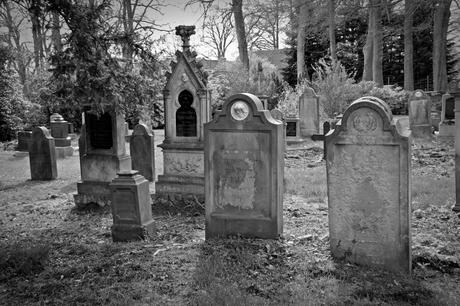Grace Thoughts
Calling The Dead – Part Four

How does God save lost people? In the context of the Parable of the Lost Sheep, Jesus said, “For the Son of Man has come to save that which was lost” (Matthew 18:11). When speaking with Zacchaeus, Jesus said, “for the Son of Man has come to seek and to save that which was lost” (Luke 19:10). Many of the Lord’s teachings were about finding lost things.
Saving The Lost
God the Father sent God the Son to seek and to save lost people. God the Son sent God the Holy Spirit to seal us and “guarantee of our inheritance until the redemption of the purchased possession, to the praise of His glory” (Ephesians 1:13-14).
Our question for this study series is simply this: how does God save? What part did He play in your salvation? In my salvation? The Apostle Paul wrote that everyone is “dead in trespasses and sins” until God makes them alive. How can people who are spiritual corpses (nekros – corpse, dead, lifeless) respond to God’s call if they are dead? Dead people can’t respond to anything because they are – dead. So, how does God save?
I was saved 51 years ago (May 10, 1971). I knew God saved me by His grace motivated by His love, but didn’t I play a part in my salvation by searching for Him? I investigated the truth claims of theism and Christianity and found them to be true, so didn’t I have some spiritual abilities prior to being saved? Why would Paul say I didn’t if I did?
For by grace you have been saved through faith, and that not of yourselves; it is the gift of God, not of works, lest anyone should boast. Ephesians 2:8-9
I studied with two professors of New Testament Greek in my first year as a Christian who said the same thing about Ephesians 2:8-9. They said the grammatical structure was such that “that not of yourselves” pointed to both the words “grace” and “faith.” They said that God’s call to the lost includes giving us grace and faith as a “gift.” They said that neither was “of works.” Why? “lest anyone should boast.”
Monergism
I listened to what they said and to what others were saying who believed in something they called “synergism.” That’s where the human will and the Holy Spirit cooperate in regeneration, meaning that the human soul didn’t lose its power to seek for salvation. The word “synergism” comes from two Greek words that mean “cooperating energy.” It’s a type of combined force that enables the human will to respond to God’s call to salvation. That made sense to me at first because I had been diligent in researching answers to hundreds of questions about the existence of God, the historical reliability of Scripture and the reality of the life, death and resurrection of Jesus Christ.
However, I eventually came across something in my studies called “monergism.” That comes from the combination of two Greek words that mean “one energy, a single source.” The idea of monergism in theology was that one person was solely responsible human salvation. If that was true, the only person who could do that would be God.
The primary point of monergism seemed to be that God wanted everything that was part of a person’s salvation to come from Him, with nothing coming from the lost person. That, of course, would mean salvation was completely God’s doing and all the credit for someone’s salvation would be God’s. God the Father exclusively sent God the Son to earth to die on the Cross to pay the penalty for sin. God the Son exclusively died on the Cross to pay the penalty for sin. God the Spirit exclusively did the work of regenerating the lost soul.
For we ourselves were also once foolish, disobedient, deceived, serving various lusts and pleasures, living in malice and envy, hateful and hating one another. But when the kindness and the love of God our Savior toward man appeared, not by works of righteousness which we have done, but according to His mercy He saved us, through the washing of regeneration and renewing of the Holy Spirit, whom He poured out on us abundantly through Jesus Christ our Savior, that having been justified by His grace we should become heirs according to the hope of eternal life. Titus 3:3-7
It would appear from Paul’s letter to Titus that they, along with the people of Crete, were hopelessly lost until the kindness and love of God appeared toward humans. It would also appear that God saved us by His mercy and not by works of righteousness which humans had done. And furthermore, God saved people through “the washing of regeneration and renewing of the Holy Spirit” and that our justification was “by His grace” that “we should become heirs according to the hope of eternal life.”
Could it be that salvation was all of God and nothing from me? Is that why Paul wrote the Ephesian Christians that they should not “boast” because salvation was not of works by all of God’s grace? Could it be that God also supplied the “faith” for a person to believe? Could it be that simple? Could it be that God does everything for salvation and wants all the credit for saving people from their trespasses and sins?
I returned to the beginning of Paul’s letter to the Ephesians to look at it with fresh eyes. I spent several months going through the letter verse by verse using the Koine Greek as an aid to understanding.
Paul wrote that Christians had been blessed “with every spiritual blessing in the heavenly places in Christ.” What a wonderful thing that is to contemplate! But that wasn’t the end of Paul’s sentence:
Blessed be the God and Father of our Lord Jesus Christ, who has blessed us with every spiritual blessing in the heavenly places in Christ, just as He chose us in Him before the foundation of the world, that we should be holy and without blame before Him in love, having predestined us to adoption as sons by Jesus Christ to Himself, according to the good pleasure of His will, to the praise of the glory of His grace, by which He made us accepted in the Beloved. Ephesians 1:3-6
God “chose us” in Christ “before the foundation of the world.” I thought about that in a personal way. God chose me before the foundation of the world. How could God choose me before He created the world? That meant He chose me and other people before we were born, before our parents were born, before the world was born!
That phrase, “before the foundation of the world,” is used several times in Scripture. Jesus prayed to His Father and asked that the Lord’s disciples would behold the glory He had with His Father – “before the foundation of the world” (John 17:24).
The Apostle Peter wrote that Christians were redeemed “with the precious blood of Christ” and were “foreordained before the foundation of the world, but was manifest in these last times for you” (1 Peter 1:18-20).
Paul wrote Timothy that God had saved and called them with a holy calling that was not according to their works, “but according to His own purpose and grace which was given to us in Christ Jesus before time began” (2 Timothy 2:9).
Paul wrote Titus that God had promised them the hope of eternal life “before time began” (Titus 1:2).
That painted a fascinating picture for me as a young Christian. God had chosen me before the foundation and given me the hope of eternal life before time began! My salvation, your salvation, was not an afterthought on God’s part. He planned everything before He created time and space. God loved His Son and us from Eternity. He chose us in Eternity – “before the foundation of the world.”
However, God having a plan for our salvation could have had a part for us to play in it as well – right?
That took me back to Romans 3 where Paul wrote that “both Jews and Greeks” were “all under sin.” Paul went on to write that “not one” person is righteous, that no one “understands,” and no one “seeks after God.” Paul repeated himself, which is often a clue about something we should take seriously.
They have all turned aside; They have together become unprofitable; There is none who does good, no, not one. Romans 3:12
I wasn’t ready to give in yet, but believing I played a role in my salvation was becoming harder to defend. I kept coming across Scriptures that pointed to my inability, pre-salvation, to do anything about my spiritual condition. I was dead in trespasses and sins. Dead.
That took me back to my intellect and will. I had used critical thinking skills to investigate the truth claims for theism and Christianity. I made a conscious decision to “choose” to believe in God and trust Jesus Christ for eternal life. Wasn’t that His famous promise?
For God so loved the world that He gave His only begotten Son, that whoever believes in Him should not perish but have everlasting life. For God did not send His Son into the world to condemn the world, but that the world through Him might be saved. John 3:16-17
However, I didn’t stop there. I kept reading.
He who believes in Him is not condemned; but he who does not believe is condemned already, because he has not believed in the name of the only begotten Son of God. And this is the condemnation, that the light has come into the world, and men loved darkness rather than light, because their deeds were evil. For everyone practicing evil hates the light and does not come to the light, lest his deeds should be exposed. But he who does the truth comes to the light, that his deeds may be clearly seen, that they have been done in God. John 3:18-21
Just like Paul wrote in Ephesians 2:3 – “among whom also we all once conducted ourselves in the lusts of our flesh, fulfilling the desires of the flesh and of the mind, and were by nature children of wrath, just as the others.” Jesus said I was “condemned already” because I had not believed in Christ. I loved darkness rather than light. My deeds were evil and I hated the light and did not come to the light, “lest his deeds should be exposed.”
So how did I see the light? Jesus said “he who does the truth comes to the light,” but how could I do truth if I hated the light and “did not come to the light”?
Next Time
It felt like I was back at square one, but was I? Maybe I had found the true understanding of how God saves and just needed to flesh it out a bit more.
We’ll dive deeper into that idea in the next part of our special study, Calling The Dead.
Scripture taken from the New King James Version®. Copyright © 1982 by Thomas Nelson. Used by permission. All rights reserved.
GraceLife © 1990-2022
 ChristianityGod's GraceHoly SpiritJesus ChristMonergismSynergism
ChristianityGod's GraceHoly SpiritJesus ChristMonergismSynergism

Published by gracelifethoughts
Founder & Director of GraceLife Ministries View all posts by gracelifethoughts
